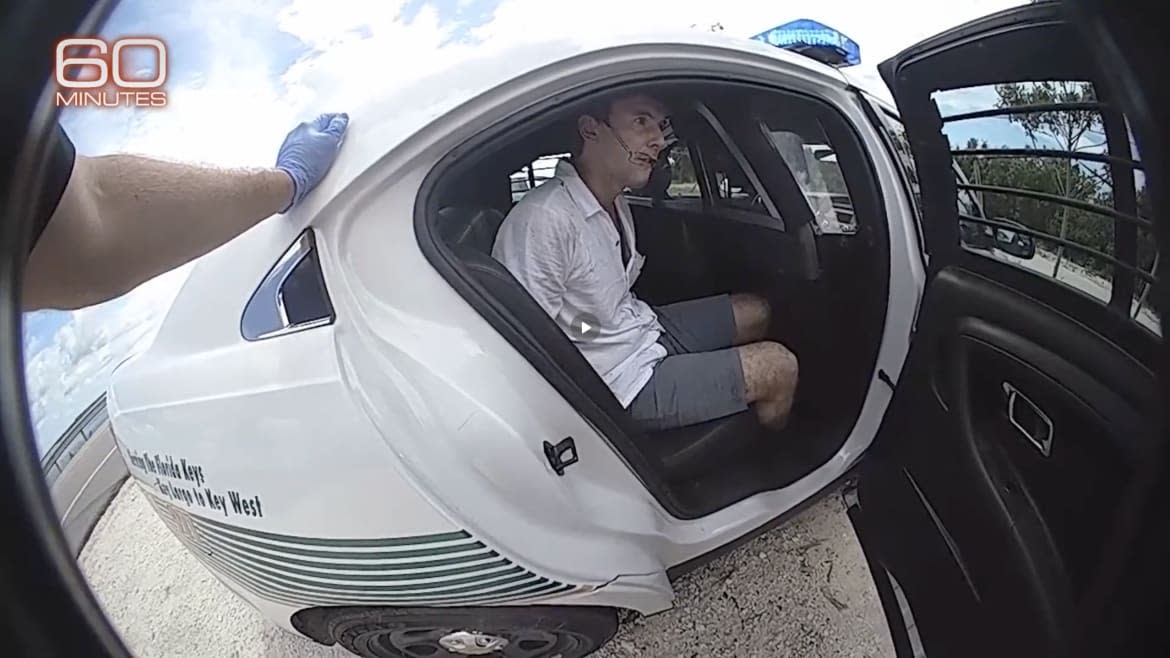‘60 Minutes’ Links Havana Syndrome Victim to Alleged Russian Spy

- Oops!Something went wrong.Please try again later.
An FBI official fell victim to mysterious symptoms associated with Havana Syndrome while investigating an alleged Russian spy inside the United States, according to a joint investigation by CBS News, Der Spiegel, and Russian-focused magazine The Insider.
The federal agent, identified only as Carrie, was “hit by a crippling force” while doing laundry at home in Florida in 2021, according to a 60 Minutes segment that aired Sunday.
“It felt like I was stuck in this state of, like, disorientation, not able to function,” she told the program. “I am completely consumed by a piercing sound that I can only describe as when you listen to a movie and the main character is also consumed by the sound after a bomb goes off.”
“It just pierced my ears, came in my left side, felt like it came through the window, into my left ear. I immediately felt fullness in my head, and just a piercing headache. And when I realized that I needed to get out of the laundry room, I left the room, and went into our bedroom next door, and projectile vomited in our bathroom.”
One of the cases she was on when she was felled by the mysterious condition concerned a man named Vitalii Kovalev, a Russian national arrested after a high-speed chase in Florida, which led police to discover a Russian passport, bank account notes, and a device able to erase his Mustang’s computer data.
For the first time, there’s evidence of who might be behind the mysterious neurological symptoms known as Havana Syndrome, which has been reported by many American officials. https://t.co/5gpaz2Toy7 pic.twitter.com/vWAc8cv0ef
— 60 Minutes (@60Minutes) March 31, 2024
Christo Grozev, an investigative journalist for The Insider, traced Kovalev’s history and told 60 Minutes that he was once a Russian military electrical engineer with a top secret security clearance who later left his career in intelligence behind to become a chef in the United States.
After pleading guilty to evading police and reckless driving, Kovalev was sentenced to 30 months in prison. He later returned to Russia, with authorities there saying he died on the frontlines of the country’s war with Ukraine shortly after.
While he was behind bars, Carrie was hit by the mysterious attack—and though she was later approved to return to work by a cardiologist, she complained of lingering symptoms.
“I remember complaining to my colleagues for months after that, I felt like I had early Alzheimer’s,” she told correspondent Scott Pelley. “Short term memory, long term memory, confusing memories, multitasking. My baseline changed. I was not the same person.”
60 Minutes spoke with a retired Army officer, lieutenant colonel Greg Edgreen, who until recently ran the Pentagon’s investigation into Havana Syndrome. He said that Russia appeared to be the common denominator across most cases concerning Havana Syndrome.
“One of the things I started to notice was the caliber of our officer that was being impacted,” he told the program. “This wasn’t happening to our worst or our middle-range officers. This was happening to our top 5 percent, 10 percent performing officers across the Defense Intelligence Agency. And consistently there was a Russia nexus. There was some angle where they had worked against Russia, focused on Russia, and done extremely well.”
For the first time, Greg Edgreen, who ran the Pentagon's investigation into mysterious neurological symptoms suffered by American officials – known as Havana Syndrome – speaks out publicly. He says top officials are “being neutralized.” https://t.co/d9DkwQDck8 pic.twitter.com/qYGRrM8VG1
— 60 Minutes (@60Minutes) April 1, 2024
Grozev, the investigative journalist, also claims to have obtained an accounting document linked to a top-secret Russian intelligence unit called 29155, which outlines a bonus payment for an officer who worked on a project concerning “potential capabilities of non-lethal acoustic weapons.”
“When I saw it, I literally had tears in my eyes, because it was spelling out what they had been doing,” he said, adding that while it's not definitive proof of Havana Syndrome’s cause, “It’s the closest to a receipt you can have for this.”
The broadcast, however, comes just days after a pair of National Institute of Health studies determined that dozens of U.S. government employees who had experienced the condition presented no consistent evidence of brain injury.
Instead, the report concluded that symptoms were likely caused by “preexisting conditions, conventional illnesses, and environmental factors,” among other things.
The Office of the Director of National Intelligence, the White House, and the FBI all reiterated to 60 Minutes in statements Sunday evening that investigating these incidents, which they refer to as anomalous health incidents (AHIs), remains a top priority for officials across the federal government.
Get the Daily Beast's biggest scoops and scandals delivered right to your inbox. Sign up now.
Stay informed and gain unlimited access to the Daily Beast's unmatched reporting. Subscribe now.

